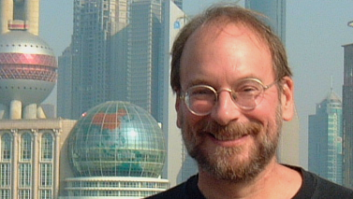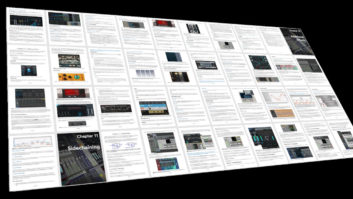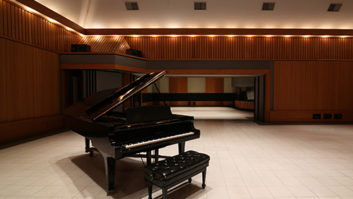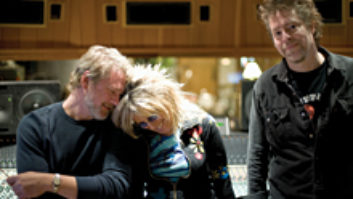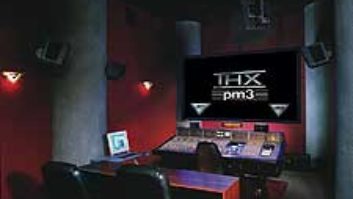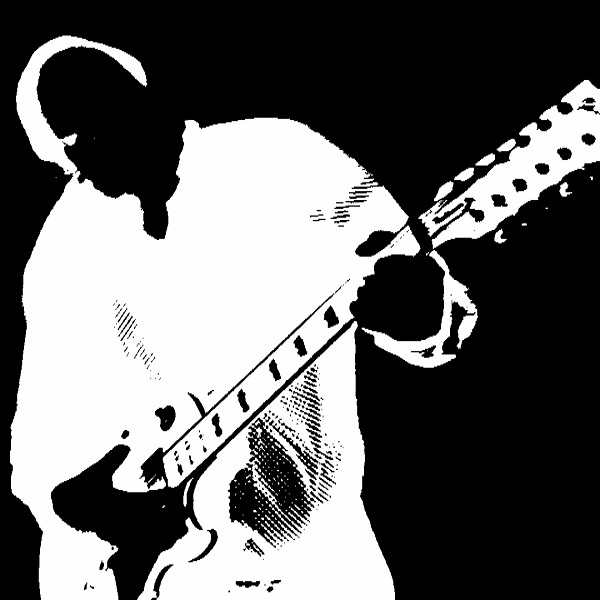 Times are changing, lines are blurring…anything goes. Recordings want to capture the magic of live performance. Live performance wants to integrate the studio’s precision. State-of-the-art technology emulates gear from over a half-century ago. Artificial intelligence is going to put us all out of business—or become an obedient servant and make our lives easier.
Times are changing, lines are blurring…anything goes. Recordings want to capture the magic of live performance. Live performance wants to integrate the studio’s precision. State-of-the-art technology emulates gear from over a half-century ago. Artificial intelligence is going to put us all out of business—or become an obedient servant and make our lives easier.
Yes, anything goes, and that’s what this column is about. Expect opinions, praise, complaints, controversy, and of course, occasional moments of blinding stupidity (where, hopefully, y’all will set me straight).
Some background: I’m a lifer in this industry. Started playing professionally at age 12. Toured the U.S. in the 60s. Graduated to producing, mixing and mastering, then returned to performing in the EDM world of the early 2000s. And when not doing those things, I’ve written more than 40 books—from 1975’s Electronic Projects for Musicians to 2021’s Max Your Mix!
As Quincy Jones once said to me, “Music is food for the soul.” I’ve seen how music is made, created, sold and listened to over the decades—as well as the profound changes that have occurred during those decades. But I sometimes ask myself, has music become more like fast food for the soul?
Remember, we’ve only been able to “freeze-dry” music as recorded sound for about 150 years. For the other (at least) 35,000 years that music has been a part of the human experience, it existed only in the moment it was created. It was evanescent, rare and never duplicated. It wasn’t like cave painting, sculptures or writing preserved in physical objects, with staying power measured across millennia.

Before recording, music had authenticity, immediacy and impact that no recording could ever reproduce. I can guarantee that listening to Beethoven’s Symphony No. 1, on April 2, 1800, in Vienna’s Burg theater would have been a very different experience compared to hearing it data-compressed to 128 kbps for streamed playback over earbuds.
I love recording, but my gold standard for music remains live performance. In the studio, my goal is to capture the lightning in a bottle that happens live. Paradoxically, digital technology has made that easier than ever. For example, some think that pitch correction takes the soul out of vocals—and it can. But it can also encourage and enhance vocals with more soul, because an artist can let loose and sing with authenticity, knowing that if there’s a once-in-a-lifetime performance, but it has one or two bad notes, you can fix them.
More than ever, I think people want authenticity. Do they like vinyl because dragging a rock through yards of plastic sounds better? I doubt it. I think the album cover, the artwork, the scent of vinyl and the ritual itself creates the feel of a more authentic bond with the artist.
Or consider NFTs. Granted, the Dutch Tulip Mania days of NFTs are behind us, but what drove it—people wanting to own something certified as authentic—is an interesting data point. Think of it this way: to even an expert observer, a forgery of a Van Gogh can be just as visually pleasing as the original—but the original is worth millions. The NFT craze was an aberration, but the technology is real, just waiting for the killer app.
‘What’s Next?’: Craig Anderton Delivers Keynote Speech
With audio, we have more ways than ever to be authentic—and the same opportunity to be fake. No, a sampled sax doesn’t sound like a sax. But we can do amazing transformations to it, and create a sound that’s uniquely, authentically our own. We can use backing tracks to try and reproduce a recording live, or we can strip the arrangement down to voice and guitar and concern ourselves with expression, not being in sync with the backing tracks. Which will an audience find more authentic?
We’re constantly given the chance to fake it. Use a preset instead of creating your own sound. Sample a guitar instead of hiring a guitar player. Master according to the numbers instead of according to the heart.
To move music and our professions forward, nothing’s changed: We need to give the people what they want. But is it perfection? Is it music that’s written and produced by committee, or music that expresses an artist’s unique vision?
Why did the Star Wars magic become so diluted in the final three movies? Easy. The first six, for all their flaws, were one person’s authentic vision. The new ones…weren’t. The Contours’ “Do You Love Me” still jumps out of your speakers 60 years after its release, because it has the joyous authenticity of a group that was about to be dropped by their label, but instead got the reprieve of a sure-fire hit.
What gains a focus group’s approval can be a hit, but that doesn’t mean it will endure. That which takes chances, is unique, has the courage of its convictions, and isn’t afraid to make mistakes can endure. Just ask David Bowie. Or Miles Davis. Or James Bond. Or Kraftwerk. Or George Lucas.
Give the people what they want. And in these strange days, when falsity abounds, I think they want authenticity. And I think you’re the ones who can deliver that.
Craig Anderton’s free educational web site, www.craiganderton.org, is now online as a companion to
the craiganderton.com digital storefront.
